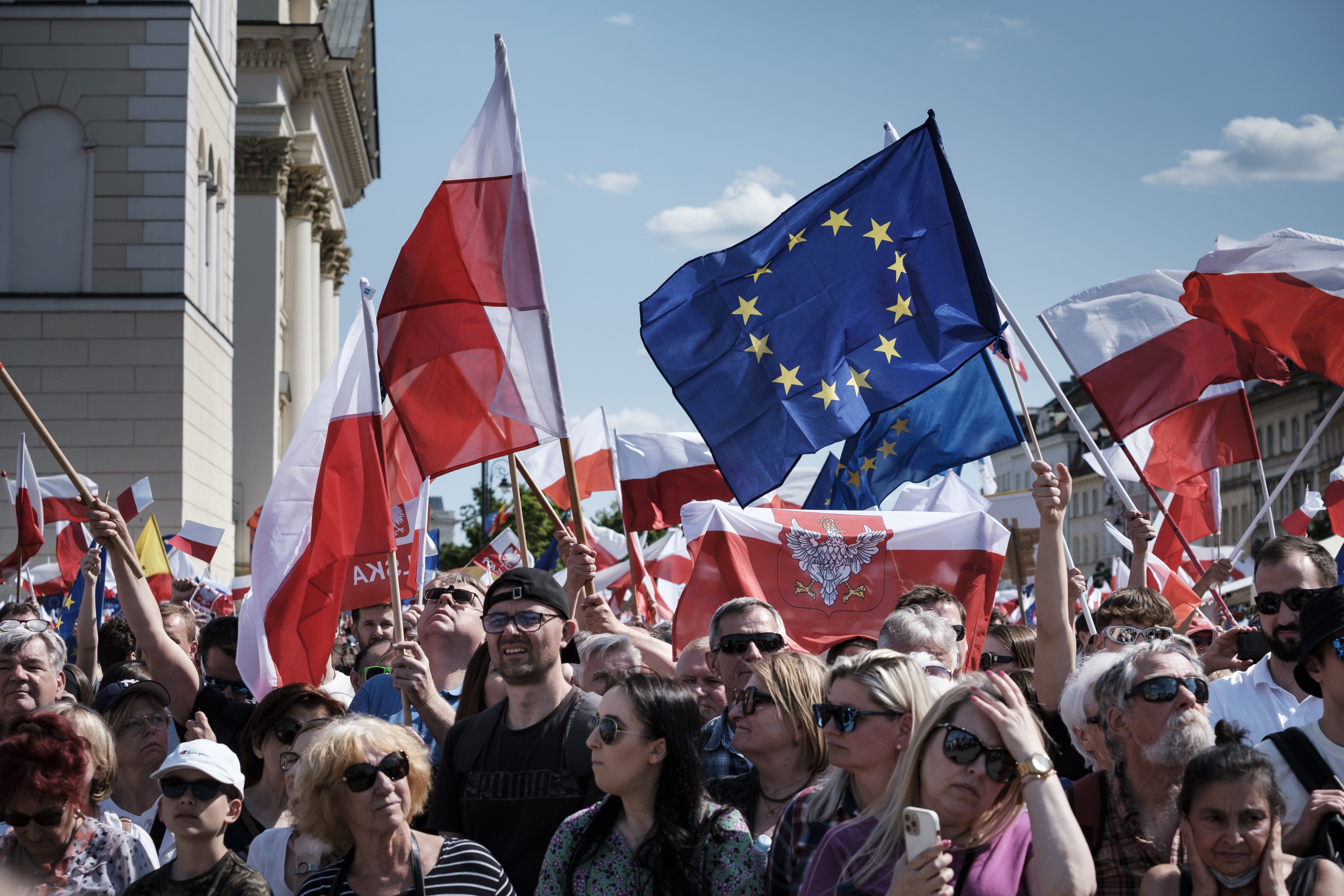Tensions over the rule of law between Poland and the EU took a (double) turn for the worse this week.
First, the bloc’s top court issued a new ruling that Polish judicial reforms from 2019 violate EU democracy norms by weakening the independence of Polish judges. The ruling is the final word in a years-long tussle between Warsaw and Brussels, which has seen the EU impose fines as high as 1 million euros per day on Poland for ignoring its demands to rewrite the reforms. Poland could now face even larger penalties.
And that’s not all — on Wednesday, Brussels said it’s suing Warsaw over a new Polish law that aims to stamp out “Russian influence”.
The government of Poland — a country with a long history of being unpleasantly “influenced” by Russia — says the measure is needed to bolster national cohesion following Russia’s invasion of neighboring Ukraine. But critics, among them the half million Polish protesters who turned out last weekend, worry that the ruling right-wing Law and Justice party will use it to pressure the opposition ahead of elections this fall. Meanwhile, both the EU and the US have warned the law is a threat to Poland’s democracy more broadly.
All of this is a reminder of the Jekyll and Hyde nature of Poland’s relationship with the EU and US. On the one hand, Brussels and Washington are delighted by Poland’s outsized role in supporting Ukraine, and its commitment to becoming one of NATO’s most fearsome fighting forces. On the other, they are increasingly worried about democratic backsliding in the EU’s most populous former communist country.
